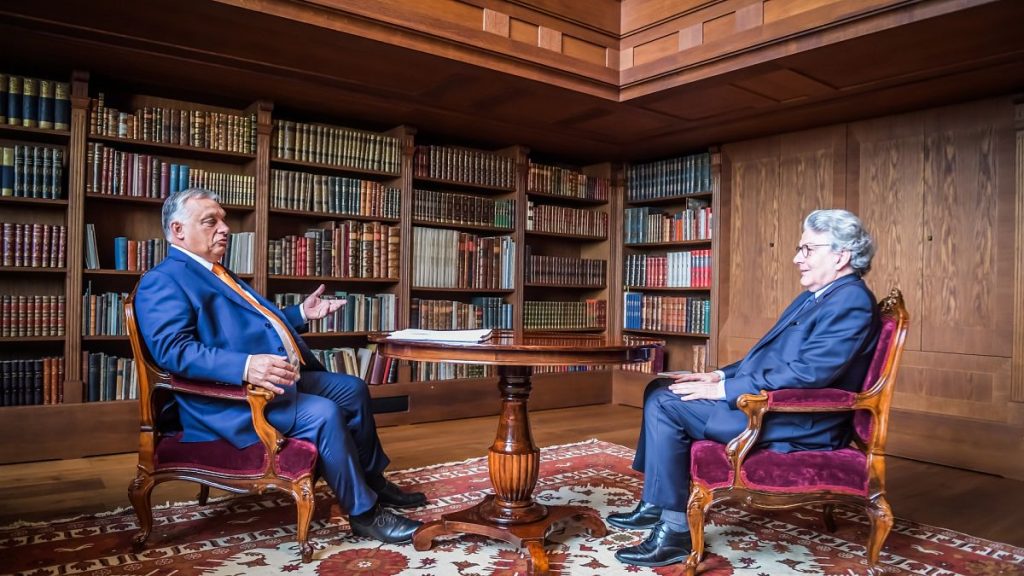The controversy surrounding Hungarian MEP András László’s accusations of double standards regarding foreign interference in elections highlights the complex interplay between national sovereignty, freedom of expression, and the influence of powerful figures like Elon Musk. László, a member of Viktor Orbán’s ruling Fidesz party, has long criticized perceived external meddling in Hungarian politics, pointing fingers at figures like George Soros and the US government. His recent claim, however, centers on the alleged disparity in the European Commission’s response to interference from Elon Musk, who used his platform X (formerly Twitter) to encourage Germans to vote for the far-right Alternative for Germany. László argues that while the EU scrutinizes actions by Soros and the US, Musk’s intervention has received a more lenient treatment, exposing what he perceives as hypocrisy within the “liberal elites.” This incident raises fundamental questions about the evolving nature of political influence in the digital age and the challenges posed by powerful individuals and platforms in shaping electoral outcomes.
László’s allegations build upon a history of Fidesz’s concerns regarding external influence. The US government’s Independent Media Support Fund, aimed at bolstering independent media in Hungary, has been a particular point of contention. Fidesz views this initiative as undue interference in domestic affairs, while the US maintains it is a necessary measure to support democratic institutions in light of Orbán’s perceived crackdown on dissenting voices. International organizations like Reporters Without Borders and even the European Commission have expressed similar concerns about media freedom in Hungary, citing legal restrictions on information, smear campaigns against journalists, and a biased media regulator. This ongoing debate exemplifies the tension between national sovereignty and international oversight, especially regarding fundamental freedoms.
Adding fuel to the fire is the controversy surrounding alleged foreign funding in the 2022 Hungarian elections. A declassified secret service report, cited by Orbán’s spokesperson, highlighted foreign transactions perceived as infringing upon Hungary’s sovereignty. This led to new legal restrictions on alleged foreign interference, which critics viewed as an attempt to silence independent voices. Independent analyses of the election, while acknowledging a lack of transparency in third-party spending, noted that this primarily benefited the ruling Fidesz party. The opposition Democratic Coalition denied receiving foreign funds and accused the State Audit Office of acting as Orbán’s tool to suppress dissent. This incident further underscores the complexities of campaign finance regulation and the potential for accusations of foreign interference to be used politically.
The figure of George Soros remains a central element in Fidesz’s narrative. The party has consistently portrayed Soros as a malign influence, emphasizing his meetings with EU officials as evidence of undue interference. Soros’s support for the Central European University, which was ultimately forced to relocate from Budapest to Vienna due to Hungarian legislation, further fueled this narrative. Critics, including the Anti-Defamation League, have condemned Orbán’s anti-Soros campaign as echoing historical antisemitic tropes. This ongoing focus on Soros highlights the potential for individuals to become symbolic targets in political discourse, often obscuring the complexities of the issues at hand.
László’s claim regarding the European Commission’s purported double standard is further complicated by the context of his cited example: the Romanian presidential elections. While he points to a video of former EU Commissioner Thierry Breton discussing the enforcement of EU law in Romania, Breton clarified that this referred to the implementation of the Digital Services Act, a regulation targeting large social media platforms, and not to the annulment of election results. The Romanian elections were annulled by the Romanian Supreme Court following a declassified intelligence report alleging Russian interference. This incident raises questions about the interplay between different levels of legal authority and the challenges of addressing foreign interference while respecting democratic processes.
In conclusion, the confluence of these events creates a complex picture of political maneuvering and competing narratives. László’s accusations of double standards regarding foreign interference tap into existing anxieties surrounding national sovereignty, media freedom, and the influence of powerful figures in the digital sphere. The ongoing debate highlights the challenges faced by democratic institutions in navigating these intricate issues while upholding transparency and accountability. The controversy surrounding the Hungarian elections, the role of George Soros as a symbolic target, and the complexities of the Romanian election further deepen this intricate web of political intrigue. The role of platforms like X in shaping political discourse and potentially influencing electoral outcomes adds another layer to this evolving landscape, raising crucial questions about the future of democracy in the age of digital influence.














